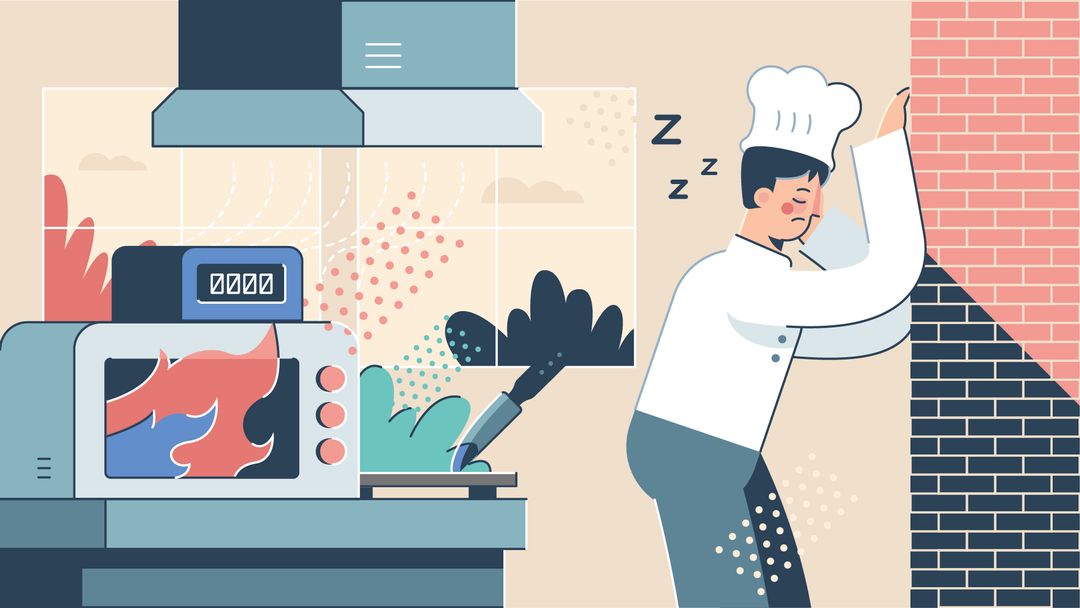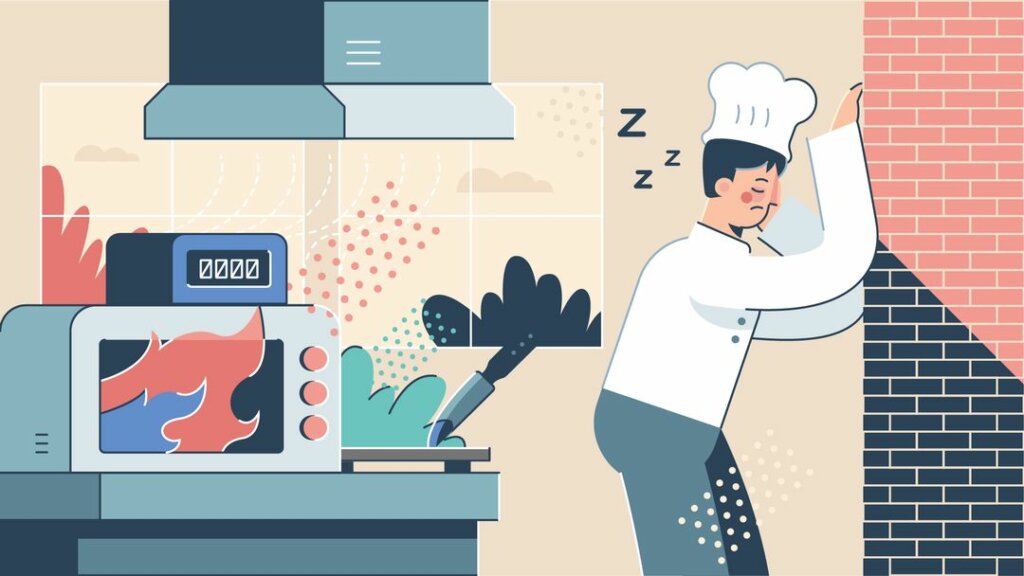Whether it’s for some last minute travel packing, or perfecting a big client pitch, pulling an all-nighter typically results in spending the next day desperately trying to keep our eyes open. No biggie: everyone’s had to skip a few hours of slumber for urgent work or life matters, right?
Well, what if we told you that there are people who experience the aftermath of an all-nighter several days a week, despite having had 9-10 hours of sleep the night before? Yup, it’s a thing. Welcome to the world of idiopathic hypersomnia (IH).
A rare and often debilitating neurological sleep disorder condition related to narcolepsy and Kleine Levin syndrome (KLS), IH causes excessive daytime sleepiness that impairs one’s capacity to perform everyday and professional activities. Here’s how to tell if you have idiopathic hypersomnia, and how you can manage it.
Can’t sleep and don’t know why? Check out our Complete Guide to Sleep Disorders with symptoms, causes, and treatments on over twenty types of sleep disorders.
Quick Facts – Idiopathic Hypersomnia
Frequency: About 0.01%
Risk Factors: Genetics, undiagnosed brain trauma
Nature: Physical and mental
Treatment: Prescription medications for narcolepsy-related sleepiness (e.g. dextroamphetamine, modafinil, flumazenil), cognitive behavioral therapy, alcohol restriction
Symptoms – Idiopathic Hypersomnia
Do you regularly plow through several hours of uninterrupted sleep, yet constantly have this ridiculously strong urge to nap in the daytime? And when you do finally rouse from this nap, do you end up feeling even more tired and unrefreshed?
If your excessive daytime sleepiness (EDS) is affecting your performance at school or at work, and prevents you from doing your daily functions, you might have IH. Here’s a list of the known symptoms of idiopathic hypersomnia.
- Chronic excessive daytime sleepiness despite having had 9 or more hours of sleep the night before
- Sleep drunkenness, or the severe and sustained difficulty awakening completely, coupled with an irrepressible desire to go back to sleep
- The need for numerous alarm clocks and elaborate morning routines to ensure one is able to get up for school or work
- Frequent daytime naps that last an hour or more, but that don’t seem refreshing or energizing
- Mental fogginess typified by attention, memory, and concentration deficit when not asleep
- Occasional sleep paralysis or sleep hallucinations on the onset or offset of sleep
- Automatic behaviors when not asleep (i.e. doing things unconsciously and not recalling having done so afterward)
Causes – Idiopathic Hypersomnia
Research reveals that idiopathic hypersomniacs carry an abundance of a small “somnogen” (sleep-inducing) molecule in their brain which heightens the activity of GABAA (gamma-aminobutyric acid) receptors.
GABA is the nervous system’s main neurotransmitter responsible for decreasing brain activity and excitability—therefore helping us get calm and sleepy.
Not only that, studies also show that patients with IH have low levels of the neurotransmitter histamine, which is responsible for excitation and wakefulness. So basically, there’s increased activity in the thing that’s supposed to make us sleepy, and low levels of the thing that’s supposed to keep us awake.
That said, science has yet to determine what it is exactly that brings this phenomenon about, hence the term ‘idiopathic’ which means “of unknown causes.”
Treatment – Idiopathic Hypersomnia
As of writing, the world is still waiting for both a definitive root cause and cure for idiopathic hypersomnia. However, there are things you can do to help manage IH symptoms.
For example, IH patients benefit significantly from narcolepsy treatment as the two disorders share excessive daytime sleepiness as a primary symptom.
Here are some of the other ways that help manage excessive daytime sleepiness and curb any potential harm that idiopathic hypersomnia can cause.
- Sleep hygiene improvement – Follow a consistent sleep schedule throughout the week.
- Lifestyle changes – A healthy diet, regular exercise, lowered stress levels, and good sleep habits help ensure that your hormone levels are balanced.
- Cognitive behavioral therapy (CBT)
- Prescription stimulants and non-stimulants with the sole purpose of helping patients stay awake
How You Will Overcome Idiopathic Hypersomnia
Because it is such a rare, chronic sleep disorder, idiopathic hypersomnia can complicate the life of anyone who has it. However, we live in a world where scientific and research breakthroughs on curing certain diseases are constantly being made—so don’t lose hope just yet!
Hypersomnolence Australia, a non profit focused on bringing awareness and providing information and support for IH patients, report on their study that some idiopathic hypersomniacs are able to effectively manage their symptoms by combining healthier lifestyle habits and medication.
It won’t be long until IH patients can eliminate their symptoms so they can finally wake up feeling refreshed, with a spring in their step, ready to face the day.
Did you know?
This article is part of our Complete Guide to Sleep Disorders – A resource that will help you get your quality sleep back. Click here to learn more about sleep disorders, their causes, symptoms and how to overcome them.



